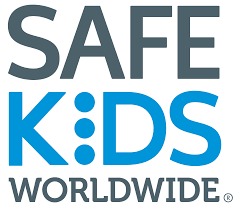How to Avoid the Risk of Forgetting Kids in Hot Cars
Forgotten Baby Syndrome or FBS refers to cases where parents leave infants or toddlers unintentionally in locked motor vehicles. Regrettably, FBS incidents often lead to dreadful outcomes. In the United States, around 40 families experience this unfortunate situation every year. The poor tot or baby dies because of the intolerable heat after being left alone inside a parked car.
Were the parents responsible totally careless or psychologically disturbed? The answer is NO. Most of them were responsible moms and dads who loved their kids very much. Obviously, these were purely cases of kids in hot cars.
What really is FBS?
Explanation on this Disorder
An online article cited how a prominent psychology, physiology, and professor from University of South Florida in Tampa described Forgotten Baby Syndromeas the “medical description for parents walking away from their cars without remembering their kids remained inside.”
According to medical experts, FBS is a failure of memory and not an issue of negligence. There are similar scenarios such as surgeons leaving medical instruments inside patients or caregivers forgetting they were supposed to look after babies. Exhaustion from a hard day’s work, stress, and change in routine represent other factors that lead to this condition.
Preventive Measures
The keyword is prevention. Here are some pointers that doting parents can follow for preventing hot car deaths.
Never leave an infant or child inside the car deliberately. You may think of leaving a sleeping toddler in your vehicle to buy some groceries or order food. Don’t leave the kid even in your driveway. There’s a possibility for the temperature to reach more than 110 degrees inside even if it’s a cool 60 degrees outside. Cars are capable of heating up to 20 degrees within a few minutes.
The cardinal rule remains: Do not leave children alone even on a cool day. Parking under a shade or rolling down the windows will hardly help. According to research, body temperatures of youngsters rise faster compared to adults. They can easily suffer from life-threatening heatstroke with a temperature of 104. Results are usually fatal if this shoots up to 107 degrees.
Double-check your car. At the same time, set reminders that come in handy for fatigued parents.
- Place your bag next to the kid’s car seat rather than beside you.
- Put a note or sign that says “Check the Back Seat” if you put your toddler in the car seat.
- In case another person is driving your baby to the daycare facility, make sure to call the staff to perform the checks and ensure your child reaches the destination safely.
It won’t cost any inconvenience by following these steps. The approach can be effective in coping with the problem of kids in hot cars.
Keep the car doors and trunk locked while in the garage or driveway. Keys must be hidden and out of reach of the children. Watch them while playing and running around constantly reminding everyone the car is not a play area.
NHTSA Reminder
The National Highway Traffic Safety Administration encourages motorists to offer help if they notice any child alone inside a vehicle. Otherwise, get some help immediately in emergency cases such as observing symptoms of heatstroke or difficulty of breathing. Playing the role of “Good Samaritan” provides legal safeguards for persons trying to help during emergencies.
NHTSA officials also recommend the following tips in connection with possible incidents of Forgotten Baby Syndrome:
- Don’t allow more than several minutes before taking any action in acting or calling 911.
- Get the child out if he or she does not respond. Spray the child with cool water and stay with the victim until help comes.4
Traveling with your kids in New York? Contact Kidmoto for car service with child safety seats.









